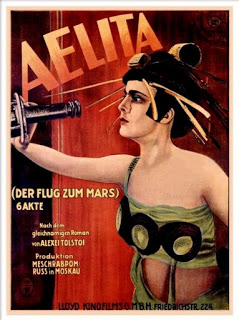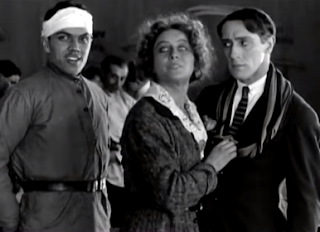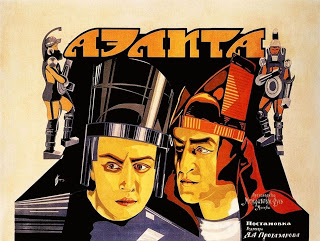A.K.A. Revolt of the Robots
This Russian silent film was restored frame by frame and it is a beautiful
thing to see. It is a remarkable film that has many sides to it - a sci-fi
fantasy, a domestic three sided drama, a critical look at the USSR shortly
after the 1917 Revolution and finally an exaltation of revolution and freedom.
The sci-fi part of it is particularly stunning with its futuristic sets and
the authoritarian state it depicts. It was clearly influential on other films
such as Metropolis. The original music was composed by Shostakovich, but
that has been lost and so the new soundtrack is derived from the classical
music of other Russian composers and is magnificent.
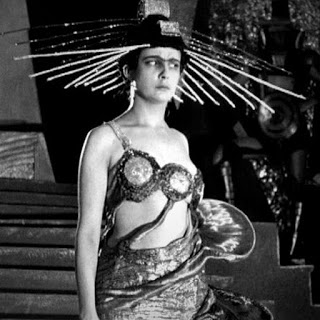
The story is told from the fevered imagination of LOS, an engineer who is
researching how to build a rocket to Mars - and who is passionately married
to Natasha. On December 4th, 1921 a telegraph message is received by people
simultaneously all over the world from an unknown source that simply states
- Anta Odeli Uta. No one knows what it means but LOS is aflame at the prospect
that it came from Mars and it throws him into an ongoing dream where he imagines
life on Mars. This is where the film excels.
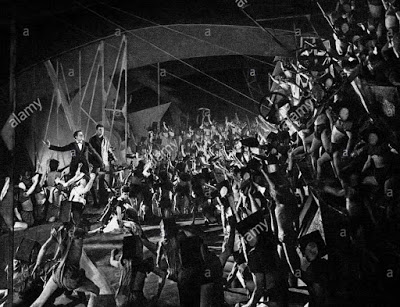
The Martians who are human in appearance live in a world that looks to have
been designed by an avant-garde neo-cubist with descending staircases and
metallic structures everywhere and the populace dressed in modern chic trendy
Egyptian influenced clothes. They are served by men or robots with their
heads encased in square metal boxes. The planet is ruled by The Elders but
there is a Queen - Aelita - who has no power. The proletariat under them
are simply worker bees who are from time to time put into cold storage (filmed
beautifully). Gor has invented a machine that allows the Martians to keep
an eye on all the planets in the Universe and Aelita breaks the rules by
peering upon earth where she sees and falls in love with LOS and the human
kiss. As I watched it, I felt almost as if it should be a ballet with all
the rhythmic motion and accompanying music.
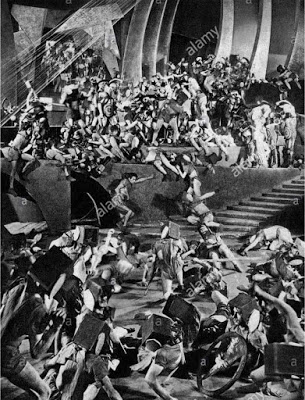
While this fantasy is playing in LOS's head, in the real world he realizes
that his wife has entered into a flirtation with a bourgeoise counter-revolutionary.
This part of the film is less intriguing and interesting today primarily
for what it shows about the conditions of life under Soviet rule. Surprisingly,
it is slyly critical though by the end it is all in for the Revolution. A
wise director.
Beautifully shot and inventively designed with those great silent film closeups
that I love so much - it was directed by Yakov Protazanov, who had lived
in Paris for a few years but came back to the USSR in 1923 and went on to
direct many films that were very popular. This one was a box office smash.
There don't seem to be many of his films though other than this one that
are available with English subs.
